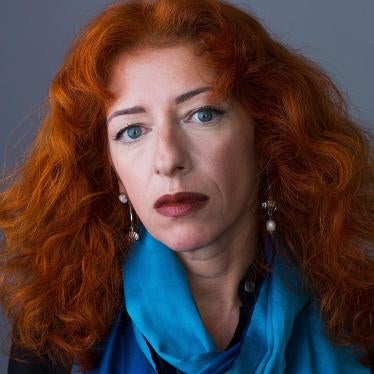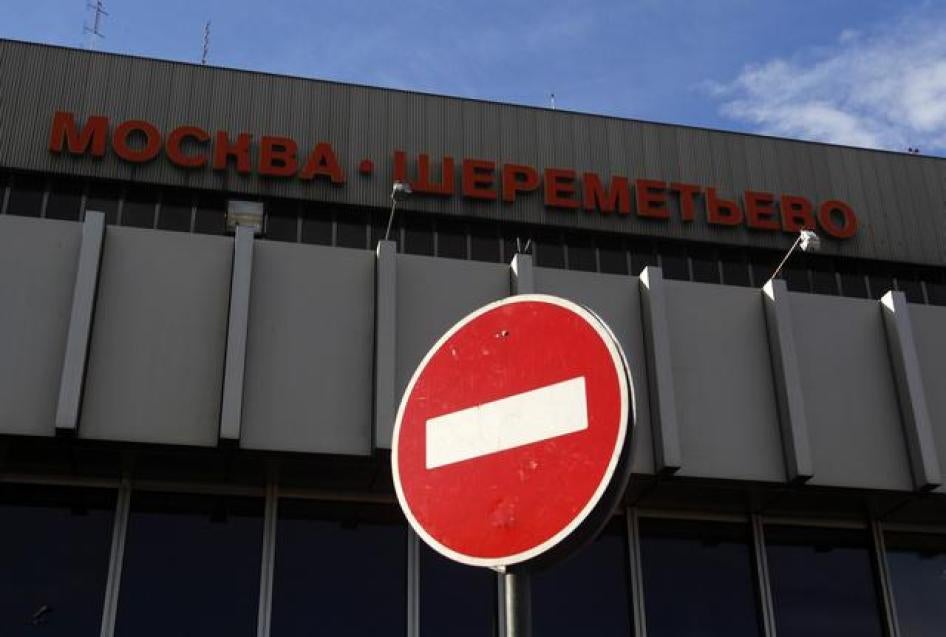Last week, Russian migration authorities accepted an application for asylum from a Kurdish family—husband, wife and four children ages three to 13—who had fled from Iraq earlier this fall. The officials issued the family documents identifying them as asylum seekers and transferred them to a temporary accommodation center a few hours’ drive from Moscow. But these actions followed a shameful nightmare: the family had been stuck for more than two months at Moscow’s main airport, living in a glass cubicle, formerly a smoking lounge, surviving on charity from sympathetic passengers.
Khassan Akhmed Abdo and his wife Gulistan Issa Shakho had lived in Erbil, the capital of Iraqi Kurdistan. This past summer, with ISIS attacks in the area and Kurdish authorities arresting ISIS recruiters in Erbil and environs, they resolved to flee to Russia.
‘We decided to go to Russia to save our children from the war,’ Gulistan explained to a Russian court, after the family were tried on charges of attempted illegal border crossing, a criminal offense. Why Russia? Because Gulistan’s sister lives here and is eager to host the family.
The family arrived at Moscow’s Sheremetyevo airport on 10 September. They had Syrian passports, Khassan being of Syrian origin, and were traveling on tourist visas. The border guards at passport control became suspicious because of the number of luggage stickers on their boarding passes—too many for your ordinary tourists on a three-week visit.
The family got stuck in the transit terminal, and a criminal investigation was opened into their alleged ‘attempted illegal border crossing’. On 30 October, Russia’s Federal Migration Service refused to consider the asylum application they had filed at the airport, citing the criminal charges against them and indicating they could not re-apply until the end of their court proceedings.
On 14 November, a court fined the husband and wife 5,000 roubles each for ‘attempted illegal crossing” of the Russian border. This amounts to approximately $155, or 146 euros. You may think that’s nothing, but for these prisoners of the airport, with its extortionate prices for food and water, the fine was prohibitive.
More importantly, though, they should not have been on trial in the first place, as both Russian and international refugee law protect asylum seekers from being prosecuted for illegal border crossing. But that did not stop Russian authorities from initiating criminal proceedings, nor the court from finding the couple guilty and slapping them with a fine.
This outcome prompted an immediate media outcry. The Civic Assistance Committee, a leading Russian group working to protect migrants' rights, met with the migration authorities and urged them to finally accept the family’s application and end their degrading and unnecessary confinement. The media attention possibly helped make up the authorities’ minds.
On the evening of 20 November, migration officials arrived at the airport, had the family re-submit their asylum application, and sent them on to the temporary accommodation center, where they now have beds to sleep on, not to mention a shower and fresh air.
This is a happy ending—although the outcome of their asylum claim is, as yet, undecided. However, one cannot help but ask why that pointless two-month ordeal and the absurd court case had to happen.
Russia claims its airstrikes in Syria are to save its people and the world from ISIS. At the same time, the government effectively punished this family of asylum seekers, who fled because they feared ISIS, with the indignity of living in the transit zone of a busy airport with neither proper washing facilities nor normal food, deprived of even a semblance of privacy, and totally dependent on the kindness of strangers.
In fact, at a time when international solidarity to protect Syrian and Iraqi refugees is of critical importance, Russia has not pulled its weight. It has offered no refugee resettlement places in response to the UN Refugee Agency’s appeals and has contributed little more than token donations to sustain four million Syrian refugees in the region in response to UN humanitarian appeals.
That it brought charges of illegal entry against a family fleeing the region, subjected them to a humiliating ordeal, and only grudgingly considered their refugee claims suggests that Russia still has a long way to go in responsibly addressing the humanitarian disaster to which its policies have, in part, contributed.










